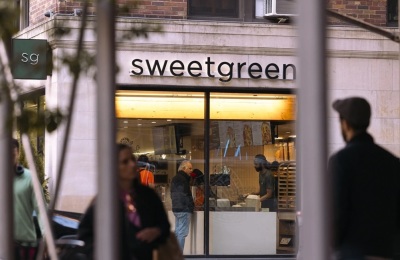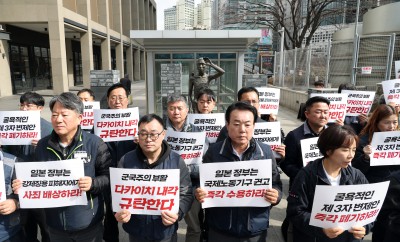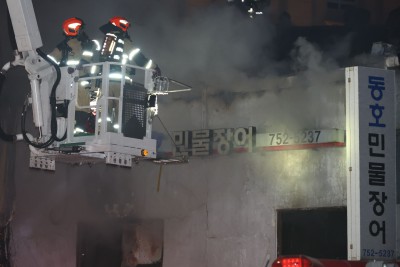The Beige Book
Summary
Prepared at the Federal Reserve Bank of Kansas City and based on information collected on or before July 14, 2008. This document summarizes comments received from businesses and other contacts outside the Federal Reserve and is not a commentary on the views of Federal Reserve officials.
Reports from the twelve Federal Reserve Districts suggest that the pace of economic activity slowed somewhat since the last report. Five eastern Districts noted a weakening or softening in their overall economies, while Chicago characterized its economy as sluggish and Kansas City noted a moderation in growth. St. Louis said activity was stable and San Francisco reported little or no growth. Cleveland and Minneapolis reported slight increases in economic activity, while Dallas described growth as steady and moderate.
Consumer spending was reported as sluggish or slowing in nearly all Districts, although tax rebate checks boosted sales for some items. Tourist activity was mixed, with residents in several Districts choosing to vacation closer to home due to high gasoline prices. The demand for services was also mixed across Districts, with strength in the IT and health care industries offsetting some weakness in other service sectors. Manufacturing activity declined in many Districts, although demand for exports remained generally high. Residential real estate markets declined or were still weak across most of the country. Commercial real estate activity also slowed or remained sluggish in a majority of Districts, although a few Districts noted slight improvement. In banking, loan growth was generally reported to be restrained, with residential real estate lending and consumer lending showing more weakness than commercial lending. Districts reporting on agricultural activity said conditions were mixed, based largely on how June precipitation affected them. Districts reporting on the energy sector said it continued to strengthen.
All reporting Districts characterized overall price pressures as elevated or increasing. Input prices continued to rise, particularly for fuel, other petroleum-based materials, metals, food, and chemicals. Retail price inflation varied across the country, with some Districts reporting increases but others noting some stability, at least for the present. Wage pressures were generally limited in most Districts, as labor market demand was soft except for highly skilled workers and in the energy sector.
Consumer Spending and Tourism
Consumer spending was reported as mixed, weak, or slowing in nearly all Districts since the last report, although tax rebate checks boosted sales for some items, especially electronics. Cleveland was an exception to the trend, characterizing sales as stable to improving outside of the grocery sector. Sales at discount stores were also reported as growing in the Philadelphia, Richmond, St. Louis, Dallas, and San Francisco Districts, and New York reported brisk sales in New York City. However, sales at most other types of stores, especially for discretionary and housing-related items, were typically characterized as weak or falling, and restaurant sales were also reported as slow in the Philadelphia and Minneapolis Districts. The outlook for retail activity was also generally downbeat, with expectations "subdued" among Atlanta District contacts and "grim" among Dallas District contacts. Despite sluggish overall sales, inventories were reported as largely satisfactory in most Districts.
Reports on automobile sales were almost uniformly weak across Districts. Sales were especially poor for large vehicles such as trucks, SUVs, and some minivans. Indeed, auto dealers in the San Francisco District were increasingly reluctant to accept trade-ins of trucks and SUVs due to a lack of a wholesale market for these vehicles. Demand for small fuel-efficient and foreign vehicles was reported to be solid or increasing in the Philadelphia, Cleveland, Chicago, Minneapolis, and Dallas Districts. Dallas reported that consumers were paying sticker prices for such vehicles, and that they were in short supply.
Tourist activity was mixed across Districts. Contacts in the Philadelphia and Chicago Districts reported weakness, and San Francisco said travel to Hawaii declined noticeably. Atlanta also noted increased hotel cancellations and shorter trip durations, although convention business remained strong. By contrast, tourist activity to mountain areas of the Richmond, Minneapolis, and Kansas City Districts was characterized as stronger, which some contacts attributed in part to more residents vacationing close to home due to high gasoline prices. New York also reported strong tourism activity in New York City, including for Broadway shows and at Manhattan hotels.
Nonfinancial Services
The demand for services was mixed among the various Districts, with strength in the IT and health care industries offsetting some weakness in other service sectors. Advertising and marketing firms in the Boston District experienced robust demand from the tourism and retail industries, and St. Louis reported the addition of two new call centers in the area. Dallas noted particularly strong demand for accounting, energy, engineering, and IT services. On the negative side, New York, Richmond, Minneapolis, and San Francisco reported services activity as mixed or decreasing. San Francisco noted "grim" conditions for real estate services such as title insurance, and some service firms in the New York District expressed caution about hiring due to ongoing turmoil in the financial industry. In transportation services, New York, Atlanta, and Dallas reported weaker activity due to higher fuel costs, while Cleveland said activity remained unchanged and Richmond indicated an increase in shipping volume. New York said fuel, as opposed to labor, was now the number one cost for trucking firms and that most surcharges were considered inadequate to defray the escalated costs. Cleveland reported that many trucking firms had reduced capital spending, with little change expected in coming months. Atlanta and Dallas noted a decline in auto and construction materials shipments. Most services contacts expected flat activity heading forward.
Manufacturing
Manufacturing activity declined or remained weak in most Districts, although Cleveland, St. Louis, and San Francisco reported stable or slightly increasing activity. Many Districts reported a decline in production of housing-related goods, such as construction equipment, wood products, home furnishings, and HVAC units. The Cleveland, Atlanta, Chicago, and St. Louis Districts all reported declines in auto manufacturing activity. However, St. Louis noted a slight rise in demand for parts of small and hybrid-type cars. An equipment producer in the Richmond District cited reduced sales due to interrupted shipments caused by higher gas prices and restrictive truck schedules. On the positive side, producers of energy equipment saw increased demand in several Districts, and Minneapolis noted a rise in orders for wind turbine parts. San Francisco said that food manufacturers continued to operate at or near peak capacity due to persistently high demand. Cleveland, Richmond, Chicago, and Kansas City reported continued high demand for exports. Dallas noted strong overseas sales of high-tech products in Asia, but cited weak demand in Western Europe. Some manufacturers in the Boston District cited examples of robust demand in foreign markets, while others said foreign demand growth may be slowing. Manufacturers in several Districts anticipated further factory weakness in the near future. While most Districts expected stable capital spending heading forward, a few noted manufacturers' plans to reevaluate based on current economic conditions.
Real Estate and Construction
Residential real estate markets declined or were still weak across most of the country. Slower home sales were reported in the Boston, Philadelphia, Richmond, Atlanta, and St. Louis Districts. Cleveland reported flat to declining sales, while sales remained sluggish in the Kansas City and New York Districts--especially at the high end--and were below year-ago levels in the Minneapolis District. New York also reported a drop in Manhattan condo and co-op transactions. Inventories of unsold homes or condos were reported as higher or excessive in several Districts, but Dallas noted a continued decline in inventories, especially at the low end. Home prices continued to decline in most Districts, and increased use of incentives and discounting was noted in several Districts. San Francisco noted particularly sharp declines in home prices in areas of California, Arizona, and Nevada that have experienced large increases in foreclosures. Atlanta said home prices dropped across the board. On the other hand, home prices were said to be holding up in the Dallas District and were little changed in the Kansas City District. Difficulties obtaining mortgage financing were reported in the New York and Chicago Districts. All Districts reporting on single-family construction said activity continued to decline, and builders in the Philadelphia District noted a rising number of cancellations. The decline in new construction accelerated in some areas of the Chicago District.
Commercial real estate activity weakened or remained sluggish in a majority of Districts, although Cleveland, Minneapolis, and Kansas City noted some improvement. Boston characterized sentiment in the sector as "decidedly morose," and industrial markets were especially weak in that District. Office market conditions in the Richmond District continued to weaken and were "bleak" in the Washington, DC area. Vacancy rates increased in the Philadelphia and Atlanta Districts, and were up noticeably in both Midtown and Downtown Manhattan, according to contacts in the New York District. Office rents remained steady in the Philadelphia District, and were little changed in the Boston District after taking concessions into account. More positively, contacts in the Minneapolis District noted rent increases and positive absorption in the Minneapolis-St. Paul area office market. Districts reporting on nonresidential construction generally noted sluggishness, which contacts in the Chicago and Kansas City Districts attributed in part to prohibitively high construction costs. Contractors in the Cleveland District were also worried about cuts but reported strong backlogs and a steady flow of inquiries. Contacts in many Districts also cited tightened financing as a constraint. San Francisco noted particularly steep drops in commercial construction in the San Diego area. Retail space was described as overbuilt in the Boston and Chicago Districts.
Banking and Finance
Loan growth was generally reported to be restrained across the country, with residential real estate lending and consumer lending showing more weakness than commercial lending. Overall loan demand was reported to have weakened in the New York, Kansas City, and San Francisco Districts, and was described as sluggish in the Philadelphia District. St. Louis reported slightly positive overall loan demand. A number of Districts reported sluggish growth or slowing demand for residential real estate loans, and San Francisco described demand for such loans as very weak. Consumer loan demand was reported to have declined in the New York, Chicago, and Kansas City Districts, and grew more slowly in the Philadelphia District. Reports on business lending were generally more upbeat. However, slight to moderate declines in business lending were reported in the New York, Kansas City, and San Francisco Districts. On the funding side, Dallas described competition for deposits as very tough, but Cleveland indicated that core deposits at smaller banks were stable to increasing as a result of a flight to safety by investors.
Most Districts reported a further tightening of credit standards, especially for residential real estate and construction loans. Dallas reported that lenders were tightening non-price terms and boosting loan spreads in response to increases in their cost of capital. Tighter standards for construction loans were reported in the Atlanta and Chicago Districts, and San Francisco indicated that credit standards remained quite restrictive for both residential real estate and construction loans. Tighter standards for business loans were reported in three Districts, but banks in the Atlanta District were reported to be competing more intensely for business customers with good credit histories. Kansas City and Boston reported that tightened standards were especially prevalent on commercial real estate loans.
Among the Districts that commented on bank loan quality, some deterioration was reported, including in the Philadelphia, Richmond and San Francisco Districts. New York reported increased delinquencies on consumer and residential real estate loans, and San Francisco indicated that declines in loan quality were greatest for real estate loans and construction loans. In the Dallas District, contacts had not yet observed a significant decline in loan quality but expected deterioration in coming months, especially for residential real estate and consumer loans.
Agriculture and Natural Resources
Agricultural conditions were mixed across Districts following June precipitation, while high input costs trimmed profits. Drought conditions eased in the Richmond, Atlanta, Minneapolis, and Dallas Districts with increased rainfall. However, Chicago, St. Louis, Minneapolis, and Kansas City reported that cool, wet weather delayed corn and soybean development, and Chicago cited major crop losses due to flooding. Heavy rains also delayed the winter wheat harvests in the Richmond, St. Louis, and Kansas City Districts, although initial reports indicated average or above average wheat yields. San Francisco noted robust agricultural export activity, but wildfires hindered growing conditions in that District. Most Districts reported concerns about higher input costs. Kansas City attributed slightly lower farm income expectations and increased agricultural loan demand to these higher costs. Chicago, Minneapolis, Kansas City, and Dallas also indicated that livestock producers were struggling with higher feed costs.
Energy activity strengthened further with rising energy prices. Oil and natural gas drilling remained strong in the Cleveland, Kansas City, Dallas and San Francisco Districts, with expectations of further exploration. In the search for new energy sources, Dallas noted increased drilling activity toward unconventional natural gas sources, and Kansas City cited rising interest in tapping shale oil deposits. Minneapolis stated that wind farm development continued, although ethanol production slowed with higher corn prices. Mining activity increased in the Cleveland and Minneapolis Districts. Cleveland indicated that equipment costs were rising, while the lack of equipment constrained oil and gas production in the Kansas City District.
Prices and Wages
All reporting Districts characterized overall price pressures as elevated or increasing. Input prices continued to rise, particularly for fuel, other petroleum-based materials, metals, food, and chemicals. Chicago said the rate of growth in steel prices had flattened, but overall levels remained high. Construction industry contacts in the Cleveland District noted rising prices for all types of products, including concrete, shingles, and steel. Boston reported that contacts were anticipating further price increases in oil derivatives, shipping, and travel. Many Districts reported on manufacturers' plans to raise selling prices as a result of higher input prices, with several commenting on fears of a corresponding decrease in customer demand and overall sales volume. Several firms in the Philadelphia District indicated that sluggish demand has made it difficult to raise prices, and Atlanta District businesses were hesitant to pass-through increases due to a reduction in discretionary consumer spending. One producer in the Richmond District indicated that his company would attempt to pass along price increases to customers but it may not be enough to offset cost increases. Retail prices increased in several Districts, including in the Kansas City District-which reported an increase in hotel, restaurant, and resort prices-and in the Chicago District, where retailers said they raised selling prices in response to higher wholesale prices. On the other hand, New York and Cleveland reported relatively stable retail prices. San Francisco also reported that final prices for many retail items were stable or down, partly due to extensive discounting, although some contacts noted that pressures were likely to increase in coming months. One major retail chain in the New York District said that while costs under existing contract were not up substantially, some escalation in prices was expected within the next year.
Most Districts reported labor markets as unchanged or slightly weaker compared with the last survey period, and that wage pressures were generally modest. Demand for labor remained high for skilled workers in most industries, while several Districts reported widespread weakness in the financial services, auto, and construction industries. Contacts in the Cleveland, Atlanta, Chicago, and Kansas City Districts reported very little upward wage pressures, with the exception of the energy and skilled labor markets. San Francisco noted some downward movement in wages for construction, finance, real estate, and retail jobs. But Boston and Dallas said more workers were requesting wage adjustments to supplement cost of living increases.
Summary
Prepared at the Federal Reserve Bank of Kansas City and based on information collected on or before July 14, 2008. This document summarizes comments received from businesses and other contacts outside the Federal Reserve and is not a commentary on the views of Federal Reserve officials.
Reports from the twelve Federal Reserve Districts suggest that the pace of economic activity slowed somewhat since the last report. Five eastern Districts noted a weakening or softening in their overall economies, while Chicago characterized its economy as sluggish and Kansas City noted a moderation in growth. St. Louis said activity was stable and San Francisco reported little or no growth. Cleveland and Minneapolis reported slight increases in economic activity, while Dallas described growth as steady and moderate.
Consumer spending was reported as sluggish or slowing in nearly all Districts, although tax rebate checks boosted sales for some items. Tourist activity was mixed, with residents in several Districts choosing to vacation closer to home due to high gasoline prices. The demand for services was also mixed across Districts, with strength in the IT and health care industries offsetting some weakness in other service sectors. Manufacturing activity declined in many Districts, although demand for exports remained generally high. Residential real estate markets declined or were still weak across most of the country. Commercial real estate activity also slowed or remained sluggish in a majority of Districts, although a few Districts noted slight improvement. In banking, loan growth was generally reported to be restrained, with residential real estate lending and consumer lending showing more weakness than commercial lending. Districts reporting on agricultural activity said conditions were mixed, based largely on how June precipitation affected them. Districts reporting on the energy sector said it continued to strengthen.
All reporting Districts characterized overall price pressures as elevated or increasing. Input prices continued to rise, particularly for fuel, other petroleum-based materials, metals, food, and chemicals. Retail price inflation varied across the country, with some Districts reporting increases but others noting some stability, at least for the present. Wage pressures were generally limited in most Districts, as labor market demand was soft except for highly skilled workers and in the energy sector.
Consumer Spending and Tourism
Consumer spending was reported as mixed, weak, or slowing in nearly all Districts since the last report, although tax rebate checks boosted sales for some items, especially electronics. Cleveland was an exception to the trend, characterizing sales as stable to improving outside of the grocery sector. Sales at discount stores were also reported as growing in the Philadelphia, Richmond, St. Louis, Dallas, and San Francisco Districts, and New York reported brisk sales in New York City. However, sales at most other types of stores, especially for discretionary and housing-related items, were typically characterized as weak or falling, and restaurant sales were also reported as slow in the Philadelphia and Minneapolis Districts. The outlook for retail activity was also generally downbeat, with expectations "subdued" among Atlanta District contacts and "grim" among Dallas District contacts. Despite sluggish overall sales, inventories were reported as largely satisfactory in most Districts.
Reports on automobile sales were almost uniformly weak across Districts. Sales were especially poor for large vehicles such as trucks, SUVs, and some minivans. Indeed, auto dealers in the San Francisco District were increasingly reluctant to accept trade-ins of trucks and SUVs due to a lack of a wholesale market for these vehicles. Demand for small fuel-efficient and foreign vehicles was reported to be solid or increasing in the Philadelphia, Cleveland, Chicago, Minneapolis, and Dallas Districts. Dallas reported that consumers were paying sticker prices for such vehicles, and that they were in short supply.
Tourist activity was mixed across Districts. Contacts in the Philadelphia and Chicago Districts reported weakness, and San Francisco said travel to Hawaii declined noticeably. Atlanta also noted increased hotel cancellations and shorter trip durations, although convention business remained strong. By contrast, tourist activity to mountain areas of the Richmond, Minneapolis, and Kansas City Districts was characterized as stronger, which some contacts attributed in part to more residents vacationing close to home due to high gasoline prices. New York also reported strong tourism activity in New York City, including for Broadway shows and at Manhattan hotels.
Nonfinancial Services
The demand for services was mixed among the various Districts, with strength in the IT and health care industries offsetting some weakness in other service sectors. Advertising and marketing firms in the Boston District experienced robust demand from the tourism and retail industries, and St. Louis reported the addition of two new call centers in the area. Dallas noted particularly strong demand for accounting, energy, engineering, and IT services. On the negative side, New York, Richmond, Minneapolis, and San Francisco reported services activity as mixed or decreasing. San Francisco noted "grim" conditions for real estate services such as title insurance, and some service firms in the New York District expressed caution about hiring due to ongoing turmoil in the financial industry. In transportation services, New York, Atlanta, and Dallas reported weaker activity due to higher fuel costs, while Cleveland said activity remained unchanged and Richmond indicated an increase in shipping volume. New York said fuel, as opposed to labor, was now the number one cost for trucking firms and that most surcharges were considered inadequate to defray the escalated costs. Cleveland reported that many trucking firms had reduced capital spending, with little change expected in coming months. Atlanta and Dallas noted a decline in auto and construction materials shipments. Most services contacts expected flat activity heading forward.
Manufacturing
Manufacturing activity declined or remained weak in most Districts, although Cleveland, St. Louis, and San Francisco reported stable or slightly increasing activity. Many Districts reported a decline in production of housing-related goods, such as construction equipment, wood products, home furnishings, and HVAC units. The Cleveland, Atlanta, Chicago, and St. Louis Districts all reported declines in auto manufacturing activity. However, St. Louis noted a slight rise in demand for parts of small and hybrid-type cars. An equipment producer in the Richmond District cited reduced sales due to interrupted shipments caused by higher gas prices and restrictive truck schedules. On the positive side, producers of energy equipment saw increased demand in several Districts, and Minneapolis noted a rise in orders for wind turbine parts. San Francisco said that food manufacturers continued to operate at or near peak capacity due to persistently high demand. Cleveland, Richmond, Chicago, and Kansas City reported continued high demand for exports. Dallas noted strong overseas sales of high-tech products in Asia, but cited weak demand in Western Europe. Some manufacturers in the Boston District cited examples of robust demand in foreign markets, while others said foreign demand growth may be slowing. Manufacturers in several Districts anticipated further factory weakness in the near future. While most Districts expected stable capital spending heading forward, a few noted manufacturers' plans to reevaluate based on current economic conditions.
Real Estate and Construction
Residential real estate markets declined or were still weak across most of the country. Slower home sales were reported in the Boston, Philadelphia, Richmond, Atlanta, and St. Louis Districts. Cleveland reported flat to declining sales, while sales remained sluggish in the Kansas City and New York Districts--especially at the high end--and were below year-ago levels in the Minneapolis District. New York also reported a drop in Manhattan condo and co-op transactions. Inventories of unsold homes or condos were reported as higher or excessive in several Districts, but Dallas noted a continued decline in inventories, especially at the low end. Home prices continued to decline in most Districts, and increased use of incentives and discounting was noted in several Districts. San Francisco noted particularly sharp declines in home prices in areas of California, Arizona, and Nevada that have experienced large increases in foreclosures. Atlanta said home prices dropped across the board. On the other hand, home prices were said to be holding up in the Dallas District and were little changed in the Kansas City District. Difficulties obtaining mortgage financing were reported in the New York and Chicago Districts. All Districts reporting on single-family construction said activity continued to decline, and builders in the Philadelphia District noted a rising number of cancellations. The decline in new construction accelerated in some areas of the Chicago District.
Commercial real estate activity weakened or remained sluggish in a majority of Districts, although Cleveland, Minneapolis, and Kansas City noted some improvement. Boston characterized sentiment in the sector as "decidedly morose," and industrial markets were especially weak in that District. Office market conditions in the Richmond District continued to weaken and were "bleak" in the Washington, DC area. Vacancy rates increased in the Philadelphia and Atlanta Districts, and were up noticeably in both Midtown and Downtown Manhattan, according to contacts in the New York District. Office rents remained steady in the Philadelphia District, and were little changed in the Boston District after taking concessions into account. More positively, contacts in the Minneapolis District noted rent increases and positive absorption in the Minneapolis-St. Paul area office market. Districts reporting on nonresidential construction generally noted sluggishness, which contacts in the Chicago and Kansas City Districts attributed in part to prohibitively high construction costs. Contractors in the Cleveland District were also worried about cuts but reported strong backlogs and a steady flow of inquiries. Contacts in many Districts also cited tightened financing as a constraint. San Francisco noted particularly steep drops in commercial construction in the San Diego area. Retail space was described as overbuilt in the Boston and Chicago Districts.
Banking and Finance
Loan growth was generally reported to be restrained across the country, with residential real estate lending and consumer lending showing more weakness than commercial lending. Overall loan demand was reported to have weakened in the New York, Kansas City, and San Francisco Districts, and was described as sluggish in the Philadelphia District. St. Louis reported slightly positive overall loan demand. A number of Districts reported sluggish growth or slowing demand for residential real estate loans, and San Francisco described demand for such loans as very weak. Consumer loan demand was reported to have declined in the New York, Chicago, and Kansas City Districts, and grew more slowly in the Philadelphia District. Reports on business lending were generally more upbeat. However, slight to moderate declines in business lending were reported in the New York, Kansas City, and San Francisco Districts. On the funding side, Dallas described competition for deposits as very tough, but Cleveland indicated that core deposits at smaller banks were stable to increasing as a result of a flight to safety by investors.
Most Districts reported a further tightening of credit standards, especially for residential real estate and construction loans. Dallas reported that lenders were tightening non-price terms and boosting loan spreads in response to increases in their cost of capital. Tighter standards for construction loans were reported in the Atlanta and Chicago Districts, and San Francisco indicated that credit standards remained quite restrictive for both residential real estate and construction loans. Tighter standards for business loans were reported in three Districts, but banks in the Atlanta District were reported to be competing more intensely for business customers with good credit histories. Kansas City and Boston reported that tightened standards were especially prevalent on commercial real estate loans.
Among the Districts that commented on bank loan quality, some deterioration was reported, including in the Philadelphia, Richmond and San Francisco Districts. New York reported increased delinquencies on consumer and residential real estate loans, and San Francisco indicated that declines in loan quality were greatest for real estate loans and construction loans. In the Dallas District, contacts had not yet observed a significant decline in loan quality but expected deterioration in coming months, especially for residential real estate and consumer loans.
Agriculture and Natural Resources
Agricultural conditions were mixed across Districts following June precipitation, while high input costs trimmed profits. Drought conditions eased in the Richmond, Atlanta, Minneapolis, and Dallas Districts with increased rainfall. However, Chicago, St. Louis, Minneapolis, and Kansas City reported that cool, wet weather delayed corn and soybean development, and Chicago cited major crop losses due to flooding. Heavy rains also delayed the winter wheat harvests in the Richmond, St. Louis, and Kansas City Districts, although initial reports indicated average or above average wheat yields. San Francisco noted robust agricultural export activity, but wildfires hindered growing conditions in that District. Most Districts reported concerns about higher input costs. Kansas City attributed slightly lower farm income expectations and increased agricultural loan demand to these higher costs. Chicago, Minneapolis, Kansas City, and Dallas also indicated that livestock producers were struggling with higher feed costs.
Energy activity strengthened further with rising energy prices. Oil and natural gas drilling remained strong in the Cleveland, Kansas City, Dallas and San Francisco Districts, with expectations of further exploration. In the search for new energy sources, Dallas noted increased drilling activity toward unconventional natural gas sources, and Kansas City cited rising interest in tapping shale oil deposits. Minneapolis stated that wind farm development continued, although ethanol production slowed with higher corn prices. Mining activity increased in the Cleveland and Minneapolis Districts. Cleveland indicated that equipment costs were rising, while the lack of equipment constrained oil and gas production in the Kansas City District.
Prices and Wages
All reporting Districts characterized overall price pressures as elevated or increasing. Input prices continued to rise, particularly for fuel, other petroleum-based materials, metals, food, and chemicals. Chicago said the rate of growth in steel prices had flattened, but overall levels remained high. Construction industry contacts in the Cleveland District noted rising prices for all types of products, including concrete, shingles, and steel. Boston reported that contacts were anticipating further price increases in oil derivatives, shipping, and travel. Many Districts reported on manufacturers' plans to raise selling prices as a result of higher input prices, with several commenting on fears of a corresponding decrease in customer demand and overall sales volume. Several firms in the Philadelphia District indicated that sluggish demand has made it difficult to raise prices, and Atlanta District businesses were hesitant to pass-through increases due to a reduction in discretionary consumer spending. One producer in the Richmond District indicated that his company would attempt to pass along price increases to customers but it may not be enough to offset cost increases. Retail prices increased in several Districts, including in the Kansas City District-which reported an increase in hotel, restaurant, and resort prices-and in the Chicago District, where retailers said they raised selling prices in response to higher wholesale prices. On the other hand, New York and Cleveland reported relatively stable retail prices. San Francisco also reported that final prices for many retail items were stable or down, partly due to extensive discounting, although some contacts noted that pressures were likely to increase in coming months. One major retail chain in the New York District said that while costs under existing contract were not up substantially, some escalation in prices was expected within the next year.
Most Districts reported labor markets as unchanged or slightly weaker compared with the last survey period, and that wage pressures were generally modest. Demand for labor remained high for skilled workers in most industries, while several Districts reported widespread weakness in the financial services, auto, and construction industries. Contacts in the Cleveland, Atlanta, Chicago, and Kansas City Districts reported very little upward wage pressures, with the exception of the energy and skilled labor markets. San Francisco noted some downward movement in wages for construction, finance, real estate, and retail jobs. But Boston and Dallas said more workers were requesting wage adjustments to supplement cost of living increases.
























